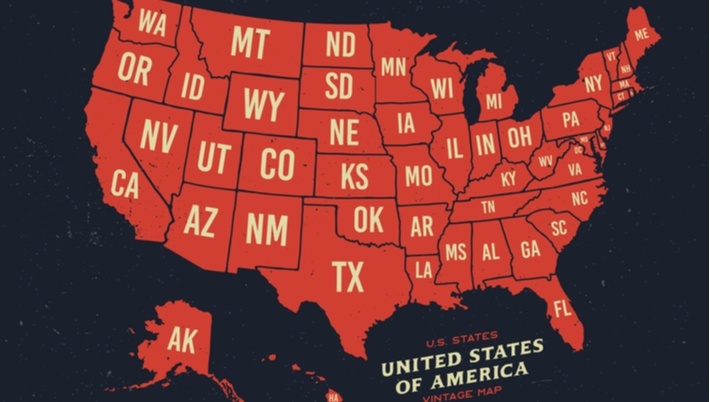The move toward online sports gambling has been gathering momentum for years but some states are still trying to figure out the details.
North Carolia
In North Carolina, sports betting advocates thought that they finally had the legislative votes to push a bill legalizing sports betting through but they were disappointed when two measures failed by a single vote.
The two bills, which both failed 50-51, would have allowed North Carolina sports bettors to place mobile bets (even using bitcoin) on sporting events in North Carolina on non-college sports matches.
Even though the two bills passed through the House Judiciary I Committee, an unexpected partnership between liberal Democrats and social Conservatives won the day. The anti-sports betting forces argued that allowing sports betting in North Carolina could lead to gambling addictions and increased crime.
Gambling in North Carolina
Currently, sports betting in North Carolina is limited to placing bets at one of the state’s two retail casinos. These casinos are owned and run by a North Carolina native tribe in Cherokee and Murphy. A third location is being built in Kings Mountain and will be operated by the Eastern Band of Cherokee Indians. North Carolina also has a state lottery.
In 1994 the state of North Carolina entered into a gambling compact with the Eastern Band of Cherokee Indians (“EBCI”) which allowed EBCI to open Harrah’s Cherokee Casino Resort in Cherokee in 1997. The EBCI’s second casino opened in Murphy in 2015. The latest state-tribe gambling compact, which was last negotiated in 2020, authorizes in-person sports gambling at both casinos.
The latest North Carolina land-based casino project, that of the Catawba Nation, has been controversial because the EBCI challenged the plan for the casino which involved land purchased in Kings Mountain by the federal government which was then held in trust for the tribe.
The Catawba Nation was able to overcome EBCI legal challenges and obtain approval for their own state-tribe compact. They opened a temporary gambling facility last summer and construction is now underway on a larger facility. They too will be allowed to offer in-person sports betting at their new casino.
The compacts with both the EBCI and the Catawba tribe require that the tribal casinos pay the state a 5% - 8% percentage of the revenue that they take in from table games such as poker, craps, roulette and blackjack. Payments to the state on sports betting involve a flat $191,000 payment and increase 3.7% each year.
Potential
Many sports betting advocates believe that, if the state collected similar percentage-on-revenue payments for sports betting as they already do on table games, it would be easier to show how much money legalized mobile sports betting would bring into the state.
Up to 12 interactive sports betting operators were expected to apply for licenses once mobile sports betting was legalized in North Carolina, offering opportunities to place bets on sporting events including NFL, MLB, NBA and NHL games plus popular sports such as NASCAR races, golf and college events. Sports betting could have started as early as 2023. Unless something shifts however, the state is expected to continue to lose revenue to its neighbors who welcome North Carolinian sports bettors to place bets in their jurisdictions.
Between January and August last year (2021), North Carolina’s neighbor Tennessee took in $24 million in revenue from taxes on sports betting and Virginia took in $22 million. Rep. Jason Saine, a Lincoln County Republican was reported to have said, “It could resurface depending on what happens. If not, sports wagering is going to remain an issue for the state of North Carolina because … states around us are doing it.”
Ohio
In a move that underscores the unpopularity of the North Carolia legislature’s reluctance to introduce mobile sports betting to the state, Ohio announced that sports betting would become legal in Ohio form January 1st 2023. Sportsbooks will be available online and sports bettors will be able to place their wagers in bars, at the state’s casinos, at kiosks and at home.
Sports betting has been legal in Ohio since last year when Governor Mike DeWine signed the bill that legalized it but it has taken the state almost a year to implement the infrastructure for its regulation.
Ohio is the United States’ 7th most populus state and it’s expected that it will be a hot sports betting market. Over a dozen online sports books have already applied for licenses in Ohio including FanDuel Ohio, DraftKings Ohio, PointsBet Ohio, Caesars Sportsbook Ohio, Bally Bet Ohio,Unibet Ohio, Bet MGM Ohio and BetRivers Ohio.
Caesars Sportsbook Ohio is already planning to build a betting facility inside the home arena of the Cleveland Cavaliers while Bally Bet Ohio has plans to open a branded lounge inside the Cleveland Browns’ stadium.
Massachusetts
In Massachusetts, Governor Charlie Baker is urging the Masachussets legislature to come to a compromise and pass a sports betting bill sooner rather than later. Like North Carolina, Massachusetts is losing millions in revenue from sports betting to neighboring states where sports betting is readily available online.
Differences in the House and Senate bills in Massachusetts are responsible for the hold-up but the Governor, as well as other legislative advocates of sports betting, are running out of patience.
Key differences that need to be resolved include the issue of college sports betting (House bill supports it, Senate bill does not), issues surrounding betting with credit cards and the question of how to control sports betting marketing and advertising. The House bill also features a much lower tax rate than does the Senate for both in-person and online sports wagering.


